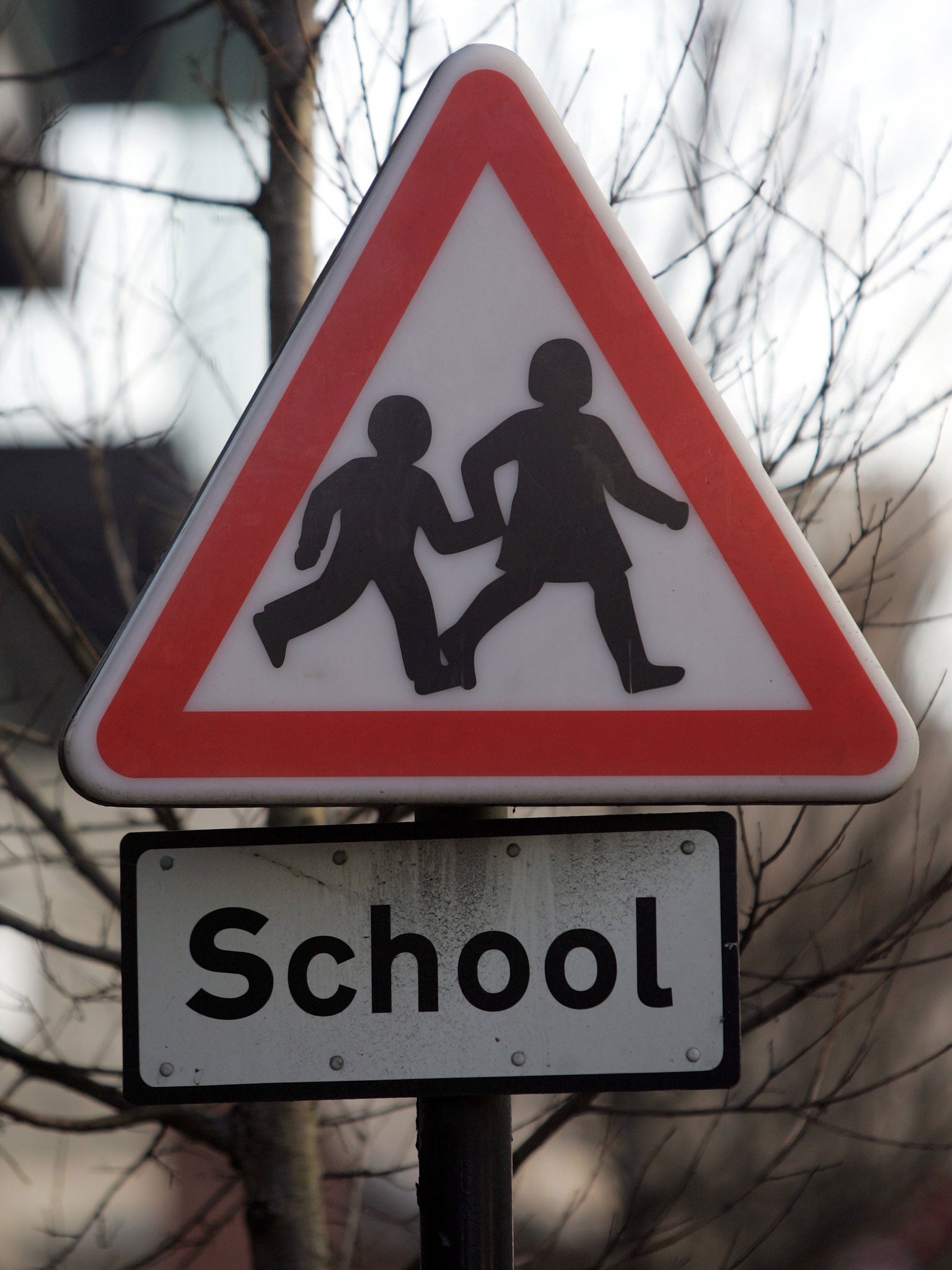The school run is a health time bomb, report warns, at start of Walk to School Week

Your support helps us to tell the story
From reproductive rights to climate change to Big Tech, The Independent is on the ground when the story is developing. Whether it's investigating the financials of Elon Musk's pro-Trump PAC or producing our latest documentary, 'The A Word', which shines a light on the American women fighting for reproductive rights, we know how important it is to parse out the facts from the messaging.
At such a critical moment in US history, we need reporters on the ground. Your donation allows us to keep sending journalists to speak to both sides of the story.
The Independent is trusted by Americans across the entire political spectrum. And unlike many other quality news outlets, we choose not to lock Americans out of our reporting and analysis with paywalls. We believe quality journalism should be available to everyone, paid for by those who can afford it.
Your support makes all the difference.Today’s generation of schoolchildren are being set on a path towards future illness by parents who insist on driving them to school, according to a new report being released today to mark Walk to School Week.
The health timebomb from children who grow up not walking to school could cost the country billions, claims the Must Try Harder report by the charity Living Streets.
Fears of children being abducted or run over on the way to school, along with time pressures, have resulted in a major shift in attitudes towards walking to school.
And it has gone from being the norm to the exception in the space of a generation, according to a major new report by the Living Streets charity.
Eight out of ten (81 per cent) parents of primary school children walked to school themselves.
Now, despite rising rates of obesity among children, more than a quarter (27 per cent) of parents automatically drive their children to school and more than one in five (21 per cent) have never considered making sure their children walk to school.
Obesity-related health problems such as heart disease, diabetes and cancers will cost Britain £27 billion by 2015.
The simple act of walking to school is not only good for children’s physical health, but helps embed a good attitude to exercise and keeping healthy.
It needs to be a key element of the government strategy to encourage Britons to be more physically active, says Living Streets.
Less than half [49 per cent] of primary school children walk to school despite the majority (75 per cent) living within two miles of school.
One in five primary school children don’t walk to school because their parents state that they don’t have time to walk with them.
The problem is even worse among secondary school children – with just 38 per cent opting to walk to school.
And although children start off wanting to get to school themselves, with 59 per cent of primary school pupils willing to walk up to 20 minutes to school each day, the interest wanes as they get older with just 37 per cent of secondary school pupils prepared to do this.
The government’s performance in encouraging children to walk to school has been “mixed” and it “must try harder”, according to the report. “The previous Government’s school travel strategy was quickly ditched with no replacement,” it says.
The walk to school is not only beneficial for physical and mental health, but helps reduce traffic congestion – with fewer cars doing the ‘school run’ – improve air quality and reduce carbon emissions,” states the report.
And campaigners are fighting to reverse the trend towards children being driven to school – aiming to make sure that more than half of primary school children will be walking to school again by 2017.
Tony Armstrong, chief executive, Living Streets, said: “The overwhelming majority of our grans and granddads walked to school, but over generations we are seeing a steady decline to the point where it seems a fifth of parents wouldn’t even think about ensuring their child walks to school. Meanwhile obesity rates have more than doubled, even since I walked to school just 20-odd years ago.”
He added: “Encouraging the walk to school not only helps to keep children healthy today, but makes for healthier adults in the future. We know that time-pressed parents often see jumping into the car as the easiest way to get children to school on time, but we do so at the risk of storing up health problems for them in the future.”
CASE STUDY
Mother of three Laura Lashmar, from Sheffield, loved walking to school with her mum and would hate for her children to miss out. “Just as my mum walked me to school I’ve done the same with my boys. Walking with your children when they’re younger is a wonderful opportunity to spend some quality time together and hear about their day. It’s also a good way to show them road safety skills, so when they’re older and want to walk to school on their own or with their friends, you can feel comfortable that they’re familiar with routes and how to cross roads. It’s important for children to develop independence and walking to school is a good way to build their confidence.”
Join our commenting forum
Join thought-provoking conversations, follow other Independent readers and see their replies
Comments